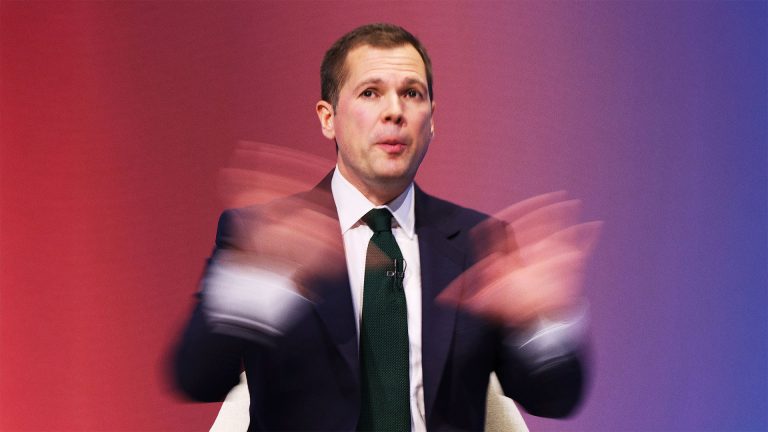Immigration matters. We all know that. It vies with health care and the economy for top place when people are asked what issues matter most to them. However, dramatic media headlines about the state of public opinion are almost always misleading. The truth is more nuanced.
1. How unpopular is immigration?
On the face of it, very. A new year Deltapoll survey for the Mail on Sunday found that 62% want the numbers to be reduced, while just 32% opposed this view, with just 11% wanting the number to go up and 21% saying “stay the same”.
Voters across the political spectrum share this view. Not surprisingly, 84% of Reform voters want the numbers down, as do 70% of Conservatives. But the figures are also high for Liberal Democrats (64%) and Labour voters (51%).
2. What has happened since last year’s election?
Opposition to immigration has grown. YouGov tracks views of whether “immigration into Britain over the last ten years has been good or bad for the country”. At the time of last year’s election, those saying “bad” (38%) outnumbered “good” (22%) by 16 points. By the end of the year the gap had widened to 25 points (bad 43%, good 18%). (The numbers saying “both good and bad” stayed fairly stable at around one in three.)
These numbers are consistent with the longer time series started by Ipsos ten years ago. Opposition to immigration was greatest the year before the Brexit referendum. After that, public opinion gradually shifted to a less hostile stance. Following the UK’s withdrawal from the EU four years ago, the country was fairly evenly divided between people who thought immigration should be “reduced” and “not reduced”.
Since then hostility has risen.
3. Which immigrants do we still want to let in, and which do we want to keep out?
It’s one thing to want fewer immigrants, quite another to decide which groups we want to keep out. In August, an Ipsos poll for British Future tested views on 13 occupations. In every case, more people wanted the numbers at least to stay the same than wanted them reduced. For 12 of the 13 occupations, the “not reduced” total outnumbered “reduced” by more than two to one – not just doctors, nurses and care home workers, but engineers, seasonal fruit and veg pickers, academics, lorry drivers, construction workers, restaurant staff, students, teachers and computer technicians. The only group that dipped below two-to-one: bankers.
As might be expected, Labour and Liberal Democrat voters tend to be even more favourable than the national average towards the idea of keeping immigrant numbers up. Politically more significant is the contrast between the views of Conservative and Reform voters.
One of the largely unnoticed consequences of last July’s Reform surge is that those who stayed with the Tories are relatively liberal on immigration. With every one of the 13 occupations tested by Ipsos, more Conservatives want to keep immigrant numbers up rather than see them fall. In all but three cases, at least 66% of Tories oppose a reduction. Even with the other three – bankers, students and lorry drivers – the numbers are well above 50%.
Hostility to immigrants is significantly higher among Reform voters. With three groups – again, bankers, students and lorry drivers – more Reform voters say reduce rather than not reduce. Reform voters are evenly divided on restaurant workers. As for the other nine groups, the balance of opinion still opposes reduction, albeit by far narrower margins than supporters of the other parties.
4. How about workers from the EU?
Since the Brexit referendum, immigration from Europe has fallen sharply, while numbers from the rest of the world have shot up. Keir Starmer rejects any policy that might be tagged as a slippery slope towards freedom of movement with the EU.
He might usefully look at a question from Deltapoll’s new year survey, which asked: “Would you support or oppose a trade deal with the European Union that gave European Union citizens the right to live and work in the UK, along with UK citizens having the right to live and work in the European Union?”
That’s a pretty good summary of freedom of movement. By more than two-to one (54-23%), voters backed the idea. Labour and Lib Dem supporters backed it by four-to-one and five-to-one respectively. As with their attitudes to jobs and immigration, Tory voters are more liberal than might be expected. Slightly more of them (43%) backed the idea than rejected it (39%). Only Reform voters line up on the other side, but they are divided: as many as 30% supported free movement while 44% opposed it.
5. Why are general views about immigration so different to views about specific groups?
Social scientists have a useful, if ugly, word for what is going on: “individuation”. It is the process by which we often have one view of a general group but an opposing view of people within it. Many of us think that politicians can’t be trusted, but our own MP is fine; that crime is out of control, but our own neighbourhood is safe; that state education is rubbish, but our own child has a wonderful teacher.
Attitudes to immigration make the same point in spades. As we have seen, immigration was particularly unpopular in the runup to the 2016 referendum. Ukip’s “Breaking Point” poster caught the tone of the times. It showed a vast line of people queuing to enter Britain.
That poster aroused fears of a mass invasion, in much the same way as Margaret Thatcher weaponised the issue in a television interview in 1978, when she was leader of the opposition: “people are really rather afraid that this country might be rather swamped by people with a different culture”. After her interview Tory support jumped five points.
Both Ukip and Thatcher were exploiting a general fear, and ignoring the immigrants that we come across personally – at work, among our neighbours and in hospitals, schools, care homes, corner shops, restaurants and so on.
The whole debate comes down to a simple question – what are we really talking about: aggregate numbers or particular people? As a nation we want the government to make huge cuts in immigrant numbers, as long as we continue to admit the particular people who make sure that so many of our public services and private businesses keep running.
In short, there are big majorities for two objectives that are totally incompatible.
6. What is the impact on all this of asylum-seekers arriving by boat?
“Stop the boats” was Sunak’s slogan at last year’s election. Much good it did him. However, he was onto something. Voters did care about it. Shortly after the election, Ipsos asked people who were concerned about immigration what their reasons were. The top four reasons, way ahead of any other, were that: not enough was being done to stop migrant crossings; immigration numbers are too high; too many people are allowed to claim asylum in Britain; and that we are too generous to asylum seekers.
In the same survey Ipsos introduced one of its questions by saying: “Immigration to the UK is made up of people coming to live here for four main reasons – to work, study, live with their family or seek refugee protection (asylum).” It then asked respondents what proportion of immigrants were asylum seekers.
The correct figure is 11%. Almost one third were Ukrainians coming to Britain under a bespoke government scheme. Without them, the proportion falls to just over 7%.
Either way, few people come close. The average answer was 37%. Labour voters (average score 31%) and Lib Dems (29%) said slightly fewer, Tories (44%) and Reform voters (51%) somewhat more.
These figures add to the point about individuation. It’s not just that hostility to immigration is rooted in concern about the aggregate. It‘s also that most people have a lop-sided view of how that aggregate is made up. Since both the last government and the present one have stressed their ambition to stop the boats, perhaps we should not be surprised.
7. What is to be done?
One obvious way forward is to campaign to get the facts straight. This would surely do no harm, but would it do much good? In an email exchange I had some months ago, Matthew Parris wrote: “The misbelief does not cause the hostility. The hostility causes the misbelief.” I fear there is some truth in this, especially in an era when social media spreads fake news so easily. Nevertheless, truth should not yield the battleground to falsehood. Starmer and Badenoch should fight Farage, not hide from him.
The bigger task is to reframe the debate. Make it an issue about doctors and nurses, restaurants and care homes. Revive the case for young Britons having the right to study and work in the EU, as part of a deal that goes both ways. Tell stories about the fantastic things immigrants have done for Britain down the years and the contribution they make today.
There is one more thing, probably the precondition for winning the arguments about facts, and also about people rather than numbers. There is an obvious reason why hostility to immigration has risen again in the past three years after a long period in decline. It’s the boats. By dominating the debate, they have led voters to conclude that the politicians have lost control. That view has been reinforced by the surge in the total numbers of immigrants settling in Britain legally.
In his recent essay in the New European, Peter Hyman wrote: “Having secure borders and orderly immigration is a basic requirement of good government.” He is surely right. A part of the problem is people coming to Britain – and not only by boat – not because they have a job to go to, but because they believe they can live under the official radar in the cash economy without needing a bank account, a driving licence or a national insurance number. We have employment laws that should stamp this out. They are seldom enforced.
The main challenge for Starmer, Yvette Cooper and their colleagues is to regain control of our borders and persuade voters they have done so. This may need a well-enforced identity system. Then, and only then, will ministers have a chance to tell a story of decency and hope, to defeat the lies and frame their argument in terms of the people we like rather than the numbers we deplore.











